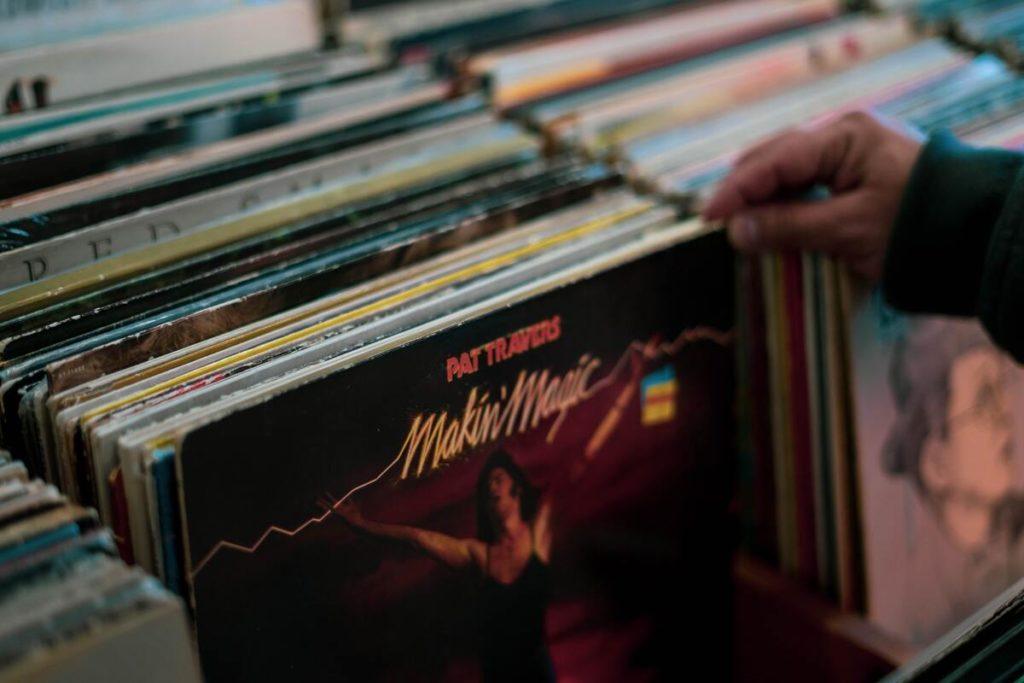Hey there, future IB scholars! If you’re reading this, you’re knee-deep in selecting a subject for your extended essay. Let’s focus on a subject close to my heart and many others. I will guide you through writing a Music extended essay in this article. From my experience, it’s an enriching venture, and I’ll give you the nitty-gritty on how to ace it according to general IB criteria.
What is a Music Extended Essay?
Hold on because we’re about to get to the point. In the IB curriculum, a Music extended essay is more than just a book report or a summary. According to the general IB curriculum, this is a research project in which you will investigate, evaluate, and argue a specific topic in Music.
The development of musical genres, for example, or the stylistic aspects of a particular time or artist, are all possible topics. Your goal is to provide new perspectives on your selected topic. For example, you may choose a topic like Beethoven’s works but approach it from a perspective that has yet to be well researched in academic literature. Essentially, your article has the potential to add to existing intellectual discussions.
Why Choose Music for Your Extended Essay?
Let’s look at why this subject is so exciting for an extended essay. To begin with, Music is much more than a collection of sounds or melodies. It serves as a reflection of a diverse spectrum of human experiences and historical events. As a result, when you write an extended essay in Music, you interact with a subject tied to various areas, including Sociology, History, and Psychology.
But don’t be deceived; this is no stroll in the park. A Music extended essay requires much investigation. It is more than just listening to your favorite songs; it also includes reading scientific papers, evaluating sheet music, and comprehending music theory.
Getting Started with Music Extended Essay
Starting your Music extended essay assignment might be intimidating, but don’t worry. On the way, you are not alone. Breaking this process into smaller, doable steps will make it more approachable. Here’s how to get started on the right foot.
Tips on Topic Selection
Choosing a topic for your Music extended essay might be like standing at a buffet with so many great selections that it’s difficult to pick just one! It is the first significant stumbling block in your writing process. The golden guideline for selecting a topic is simple but invaluable: go with what interests you. I can also give you some other helpful tips:
- Keep in mind that you have a word restriction. Please choose a topic that is not so wide that you cannot effectively cover it, but also avoid ones that are so narrow that you will struggle to complete your essay.
- Consult with your advisor before deciding on a topic. They can offer significant insights and guide you toward relevant resources.
- While drawing inspiration from previously published extended essays or academic work is OK, strive to add something fresh.
- Before settling on a topic, conduct preliminary research to ensure you have adequate material to work with.
- The ideal themes allow you to weave in your personal experiences or viewpoints, giving the essay a distinct flavor.
- Consider the contemporary significance of your issue. Is it anything that people are discussing? Is it connected to more prominent cultural or historical themes?
Your enthusiasm for the subject will feed your motivation during the long hours of research and writing, turning the process into an adventure rather than a work. Furthermore, a passionate tone will make your work more memorable to your readers. By the way, you can find lots of great extended essay Music topics in our blog.
Formulating Research Question
In the academic world, a well-defined research question is a beacon that guides your entire essay. From my experience, the mistake students often make is formulating either an overly broad or an extremely narrow issue. A general question could lead you into an abyss of endless information, while a very focused one might leave you scraping the barrel for content.
Striking the right balance is essential. To do so, consult various sources — academic articles, interviews with experts, and the like — to refine your question. It’s not just about finding the correct answer; it’s also about asking the right question.
Where Can I Find Ideas for Music Extended Essays?
Ah, searching for that perfect essay topic can be a challenge. Your essay must be original, relevant, and uphold academic standards. When it comes to music essays, the opportunities are infinite. Where can you find inspiration for a captivating work? Let me offer some tips from my experience.

School Library and Online Catalogs
The old-school library, believe it or not, is a goldmine. Academic books, journal articles, and periodicals can offer excellent perspectives that spark interest. Don’t underestimate the power of a good bibliographic search; sometimes, the best ideas come from academic texts.
Academic Journals
Musicology journals and publications are packed with cutting-edge research and can be a fantastic source of ideas. Studies on everything from the role of Music in cultural movements to the evolution of specific genres could be great fodder for your extended essay.
Media Platforms and Documentaries
A well-produced documentary or an in-depth article from a reputable media outlet can provide a different angle that academic publications may not cover. Discussions about the social impact of Music, profiles of influential artists, or the science of musical tones are all excellent topics for an essay.
Talk to Your Music Teacher
Sometimes, the best resources are people, not publications. Your music teacher likely has a wealth of knowledge and could provide suggestions tailored to your interests and the course requirements. Teachers are generally keen to help students who show initiative.
Class Notes and Textbooks
Please pay attention to your class materials; they’re an invaluable resource. Previous topics discussed in class could offer avenues for more profound research. Textbooks often cover broad themes and can serve as a springboard for more specialized study.
Online Communities and Forums
Websites and online communities dedicated to music studies can be surprisingly helpful. You can find a wide range of ideas and resources shared by students and scholars alike. But do remember to cross-reference any information you gather online with credible academic sources.
Your Playlist
Lastly, don’t underestimate your taste. Sometimes, the best topics are those you’re already passionate about. Love classical Music? Research its therapeutic effects. More of a hip-hop fan? Consider researching its social and political impact.
Structuring Your Music Extended Essay
The structure helps you as a writer and lets the reader grasp your essay. Following a well-planned strategy increases your chances of meeting the IB criteria, and let’s be honest, who doesn’t want that top grade? So, let’s break down the major elements of your IB music extended essay.
Introduction: The Opening Act
Your introduction should begin with a hook — a compelling sentence or fact that grabs the reader’s attention. Remember, first impressions are essential.
Summarize your paper’s central argument or point in one or two sentences. This statement should provide a glimpse into the heart of your argument and let the reader know what to expect.
Main Body: The Heart of the Matter
Begin with a strong topic sentence that outlines what this section will cover. Then, continue to support your claims with facts and arguments. It is where your research shines!
Similar to the first section, outline and support your main points. Vary your sentence structure to keep the reader engaged, and use transition words to guide them through your argument.
Again, introduce your point clearly and support it with well-researched facts and arguments. This section should also flow naturally into your closing remarks.

Need help with your IB extended essay?
From research and analysis to structuring and editing, our skilled mentors will be by your side, helping you craft an exceptional extended essay that not only meets the wordcount and stringent IB criteria but also reflects your passion for selected IB group.
Analysis: The Composer’s Breakdown
What does the evidence point to? Here’s your chance to show how all the dots connect. Remember that for every argument, there is a counterargument. Acknowledge opposing views and refute them with your research.
Conclusion: The Final Note
Refrain from introducing new information here; summarize what has been discussed in the essay. Highlight your findings and their implications.
End with a bang! Discuss the broader implications of your findings and what future studies could focus on. It will leave your readers with something to think about. Wrap up your essay with a statement that reinforces your main points.
Bibliography: Credit Where Credit Is Due
Cite all the resources you used, following the IB citation guidelines. It adds credibility to your work and shows that your arguments are well-supported.
Conclusion
So there you have it, folks! A comprehensive guide to writing a top-notch Music extended essay. Remember, this is a significant undertaking that will require time, effort, and a lot of love for your subject. As someone who has been through the IB path, I can assure you it’s worth every bit of the struggle.
If you still find yourself hungry for more, our blog has many articles to quench your thirst for knowledge further. Trust me, the more informed you are, the easier the writing process becomes.
So, what are you waiting for? Grab your favorite playlist, and let’s get cracking on that Music extended essay! And remember, our experienced IB writers are always ready to help you.
Luke MacQuoid
Luke MacQuoid has extensive experience teaching English as a foreign language in Japan, having worked with students of all ages for over 12 years. Currently, he is teaching at the tertiary level. Luke holds a BA from the University of Sussex and an MA in TESOL from Lancaster University, both located in England. As well to his work as an IB Examiner and Master Tutor, Luke also enjoys sharing his experiences and insights with others through writing articles for various websites, including extendedessaywriters.com blog
- The Role of Technology in Shaping Modern Knowledge


 by Luke MacQuoid
by Luke MacQuoid - Interlinking TOK with Other IB Subjects


 by Luke MacQuoid
by Luke MacQuoid - How Many Sources Needed for TOK Essay?


 by Luke MacQuoid
by Luke MacQuoid - How Much Does a TOK Essay Cost?


 by Luke MacQuoid
by Luke MacQuoid - IB TOK Presentation Examples for Students


 by Luke MacQuoid
by Luke MacQuoid - 25 Topics for TOK Presentation. Ideas for IB Students


 by Luke MacQuoid
by Luke MacQuoid